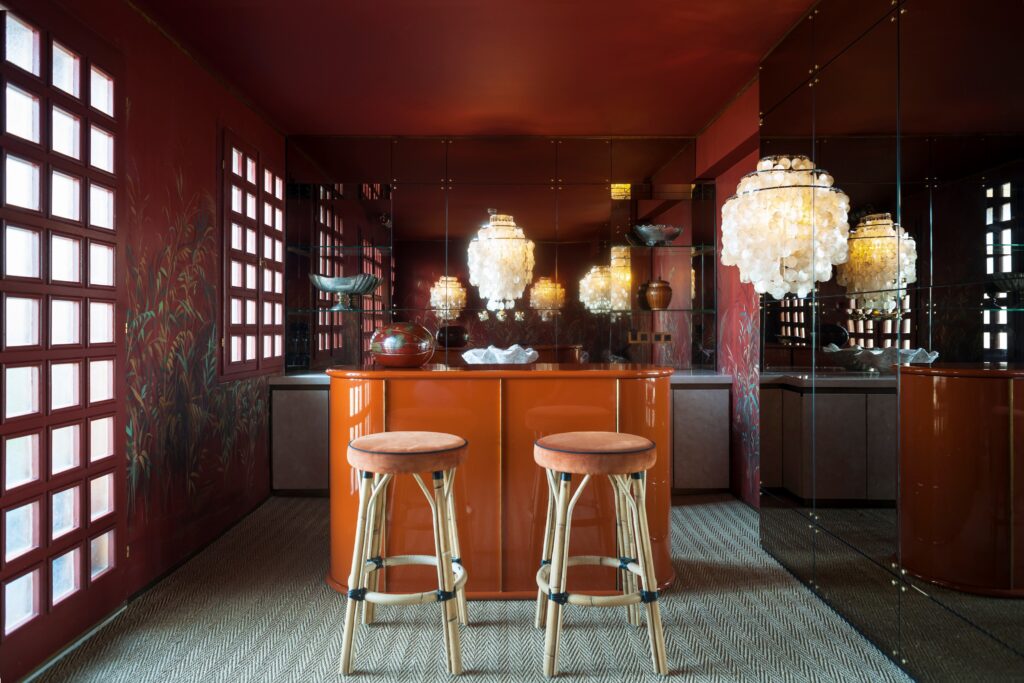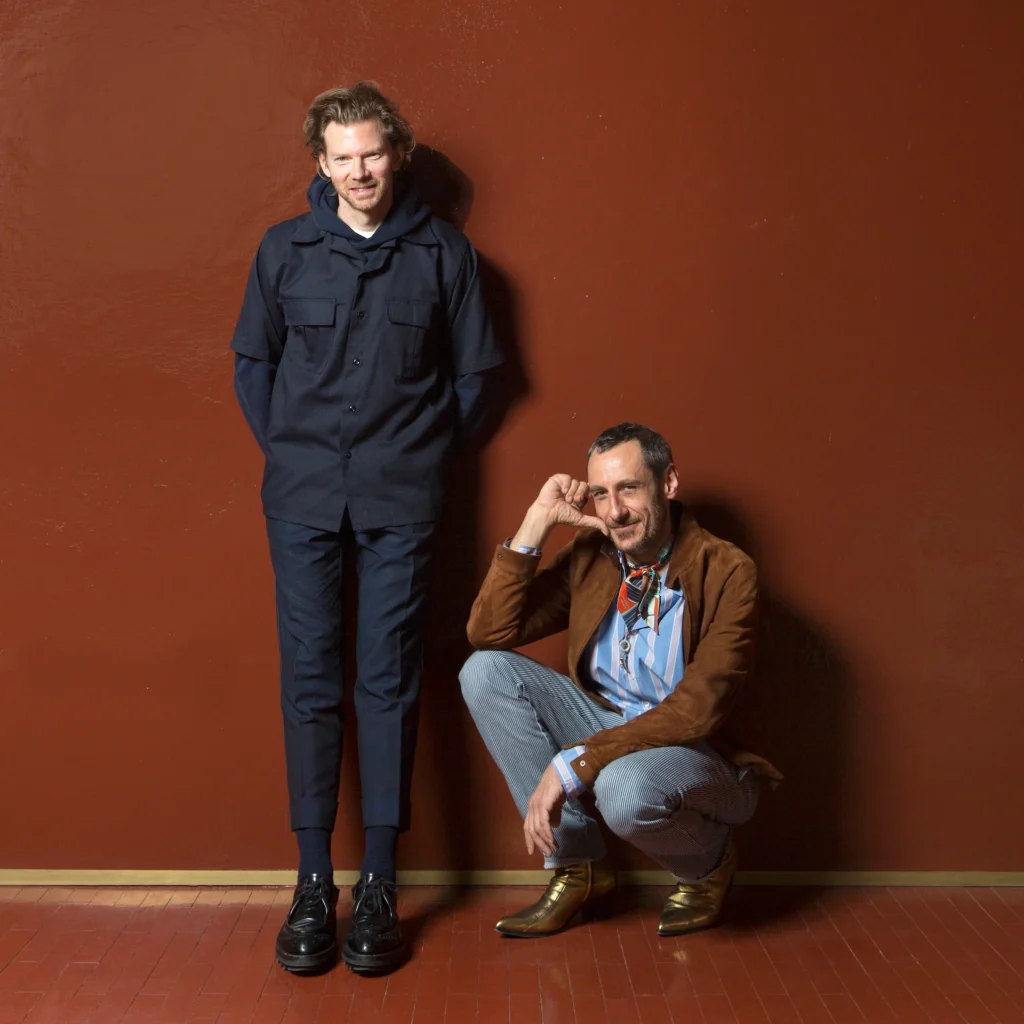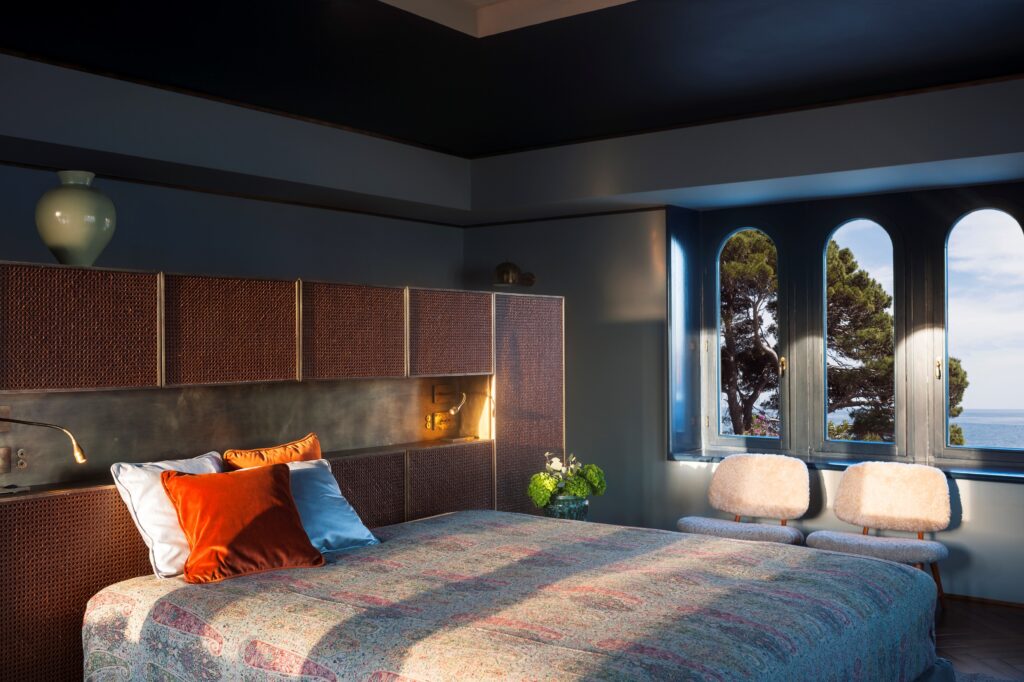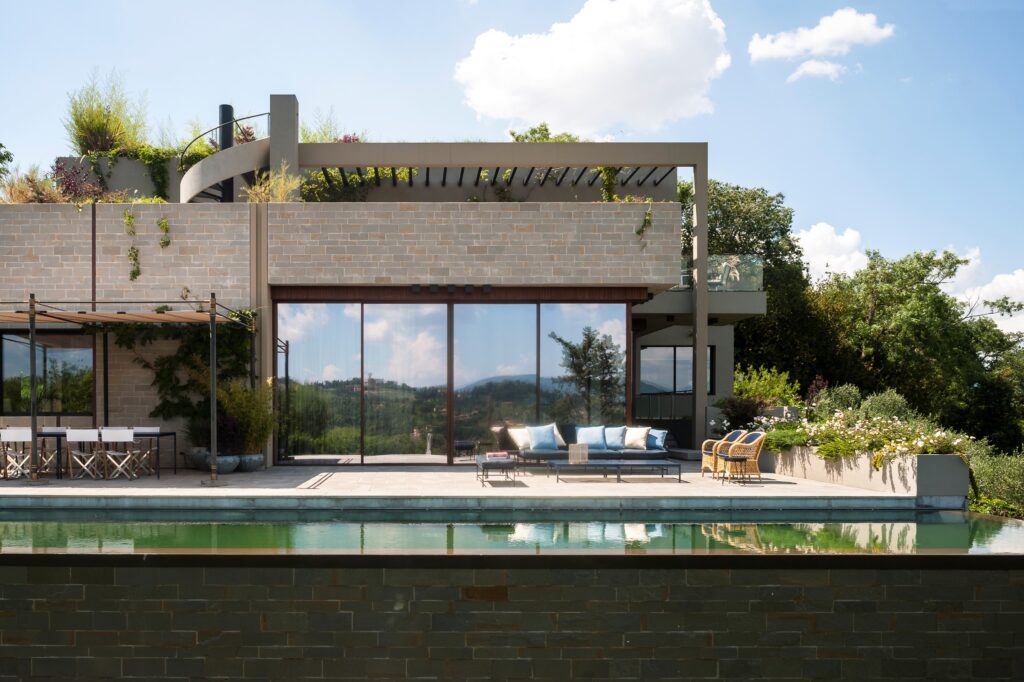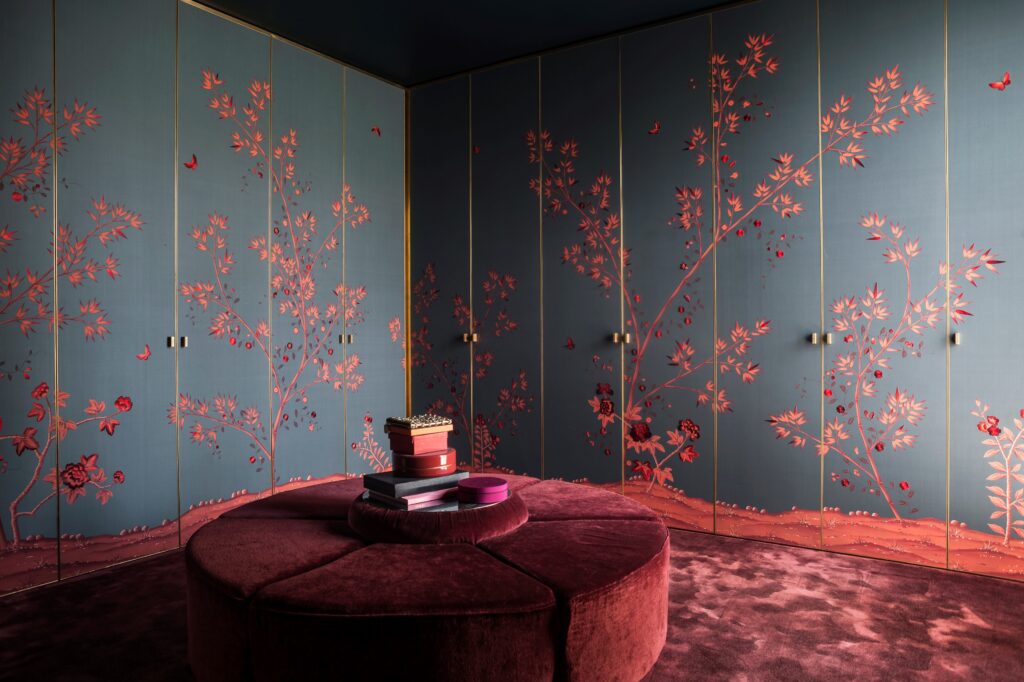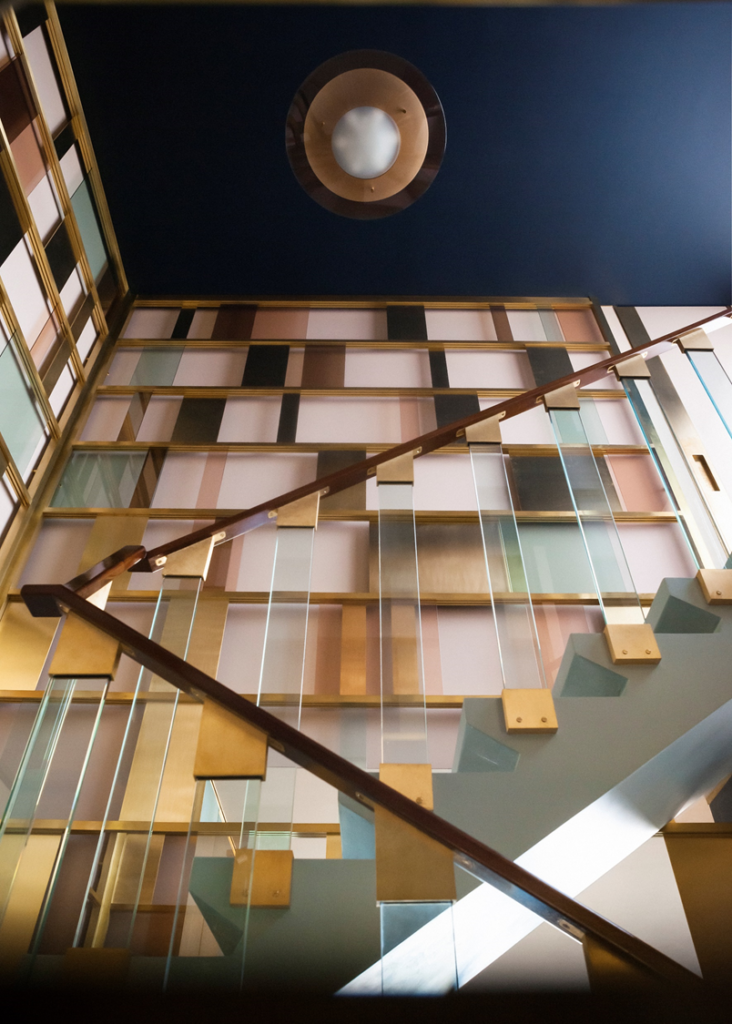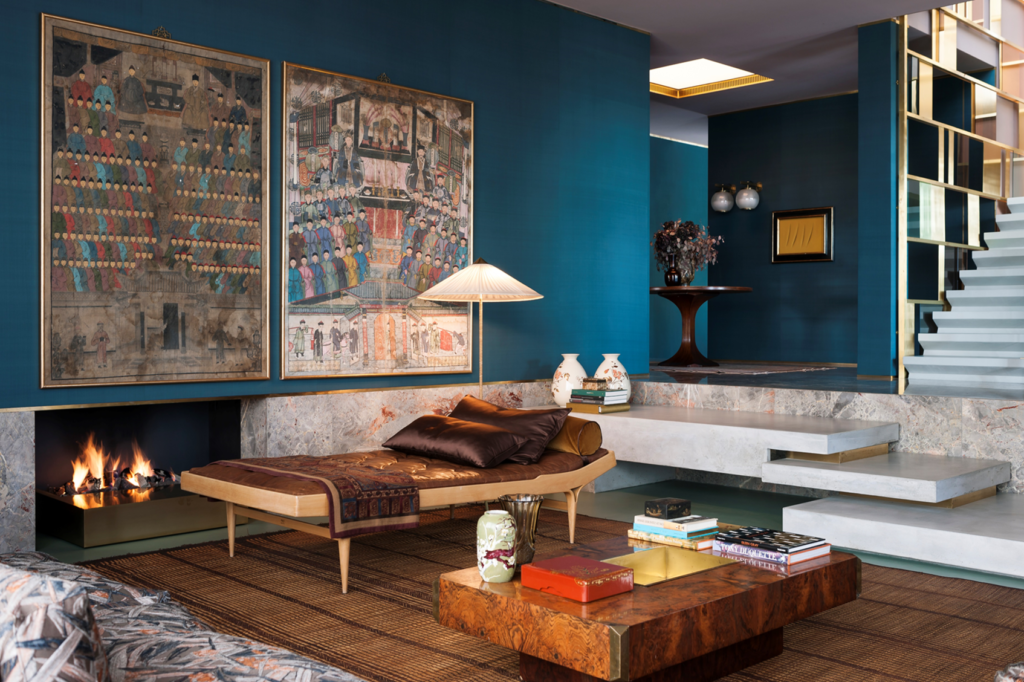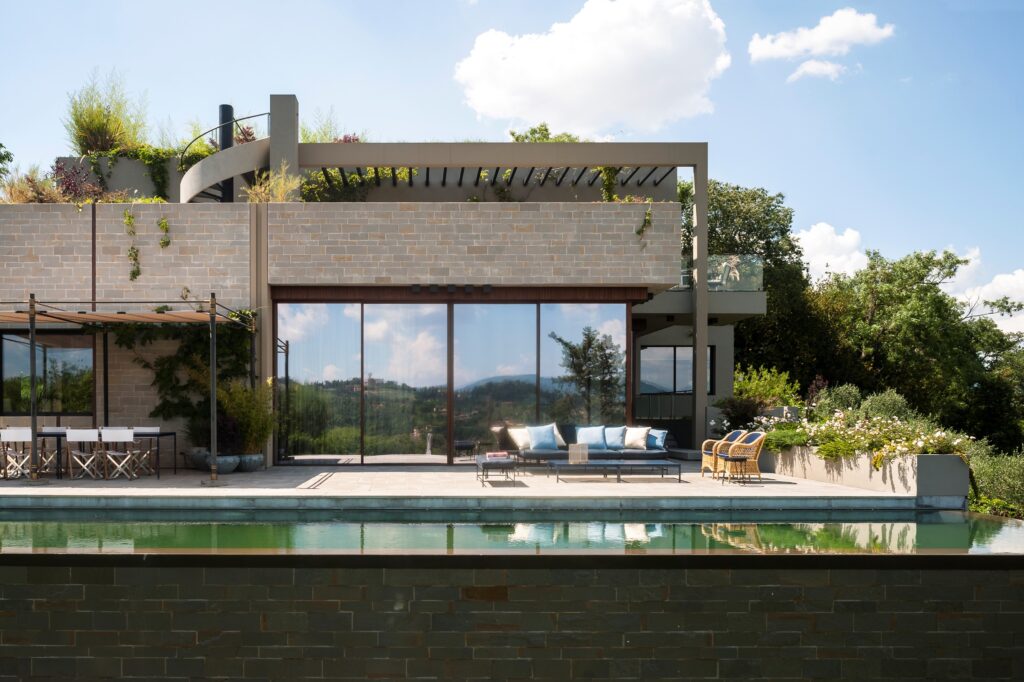
“Britt Moran and Emiliano Salci uniquely understand design’s power to create an emotional experience. Their work quite literally takes your breath away… They have repeatedly wowed the international design community with their cinematic flair and exuberant use of color, drawing on their extensive knowledge of historical design, especially from the 1930s. Best of all, these men are incredibly generous, kind spirited, and a delight to work (and play) with.”
—David Alhadeff, The Future Perfect
The work of DIMORESTUDIO always stirs in me images of bygone aristocratic lifestyles; jewelry boxes filled with emeralds, rubies, and sapphires; the chic, Jazz age Milanese villas of Piero Portaluppi. Founded nearly 20 years ago by Emiliano Salci and Britt Moran, DIMORESTUDIO is the most sensational thing to happen to Italian interiors since Renzo Mongiardino, the legendary Genoan who has been called “the greatest interior designer of the 20th century.”
Salci and Moran’s daring aesthetic universe is singular, without match in the world of contemporary interiors. Driven by a passion for design history, they harness the drama of deep, smoky colors, lush wall coverings, and sculptural forms, producing results that are at once bohemian and noble, powerful yet livable, historical yet on-the-pulse. It was such a treat to host Moran in last week’s Interior Design: The Legends program and hear the fascinating story behind the DIMORE brand.
When Salci and Moran launched the DIMORE brand in 2003, the studio focused solely on architecture and interiors. Three years later they expanded their services to include DIMOREMILANO, a production house for Salci and Moran’s furniture, lighting, and textile designs. In 2014, DIMOREGALLERY was added to the family, offering a curated selection of vintage 20th-century furniture and objects. Today, the three DIMORE arms are thriving, one feeding into the other as a holistic practice.
Glamor has defined DIMORESTUDIO from the beginning. Their first project was the refurbishment of the landmark Grand Hotel et de Milan. Located on Milan’s stylish Via Manzoni and frequented by creative luminaries and fashionistas—once the home of composer Giuseppe Verdi—the Grand Hotel would have been a dream assignment even for a much more experienced studio. It took years to complete so that the hotel could remain open throughout, starting with five or six of the 98 guestrooms at a time, followed by the restaurant and greenhouse, and concluding with the famous lobby. If you visit Milan, go and enjoy an afternoon coffee to experience the allure that has become DIMORESTUDIO’s signature.
Salci and Moran have since become the most prominent ambassadors of the Italian voice in contemporary interior design and of Italy’s living legacy of craftsmanship. Even when they work in other parts of the world, they make primary use of textiles, wood panelings, marble work, and metal fittings produced in Italy. They also habitually include mid-century Italian furniture, often masterpieces by the likes of Gio Ponti, Carlo Mollino, Osvaldo Borsani, Gabriella Crespi, Franco Albini, and Ico Parisi. Their clients, Moran said, are happy to invest in great pieces that lend a bit of “Italian magic.”
Museum exhibitions, Moran told us, such Gio Ponti at the Musée des Arts Décoratifs in Paris, has brought Italian design to global attention. As a result, Italian modernist design is in high demand and the market is flooded. But Salci and Moran are careful to carry only works of exceptional provenance, condition, and history.
Many of DIMORESTUDIO’s clients come to them with full collections already in place; they are confident in their tastes and know that they want the DIMORE look. This was the case with the owner of the picturesque Villa Sheherezade, a white stone Moorish-revival seaside house, now a retreat and a venue for destination weddings, situated outside of Dubrovnik on the Adriatic coast. DIMORESTUDIO completely renovated the property during the months of pandemic. Salci and Moran sought to preserve the historical elegance while introducing Italian chic to the Croatian coast, using outstanding vintage and contemporary furnishings as well as their trademark palette of saturated hues.
DIMORESTUDIO always approach their interiors in the spirit of the gesamtkunstwerk, the total work of art, composed like musical ensembles, where every individual element contributes to the whole. Salci is the composer, the creative mind who has an extraordinary ability to envision spaces inspired by a glorious past, not only preserving the patina of time but creating it. Moran told us that their clients prefer to live in spaces that converse with other eras. “It is comforting to them,” he said.
Salci and Moran’s passion for historical design is clear in their recently completed Firenze Bellosguardo, a house in Florence with stunning views of the old city and its iconic Duomo—the studio’s first project in the capital of Tuscany. They built the structure in concrete to reference Italian Rationalism of the 1930s. The stairs leading from the living room to the dining area were inspired by Carlo Scapa’s Olivetti showroom in Venice; the stairs leading to the second floor were inspired by the home of Osvaldo Borsani outside of Milan; and the glass tiling on the walls nods to Gio Ponti. But Salci and Moran’s references spill beyond the Italian border as well, as with their Oriente A Chandelier, inspired by the memorable Academy-Award-winning French film Indochine, a 1930s period piece starring Catherine Deneuve.
There is something romantic about the way Salci and Moran seek out memories of those who lived before us. Their references are evocative and dreamy. The duo’s passion for the past demonstrates their commitment to timelessness. However, the role of the designer, Moran told us, is to build a space where clients can evolve, add, and change. For DIMORESTUDIO, an interior should never remain still. And this is where timelessness meets of-the-moment.
This article was published today in Forum Magazine by Design Miami. All images courtesy DIMORESTUDIO.
